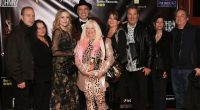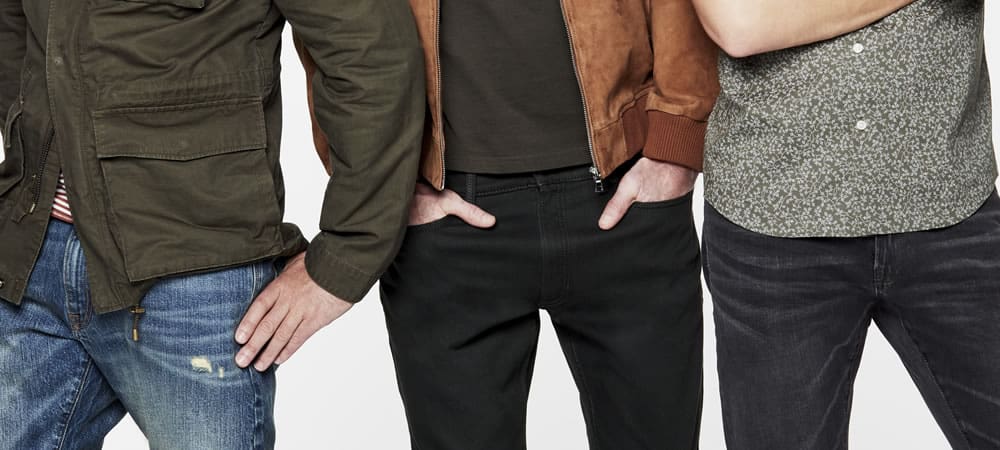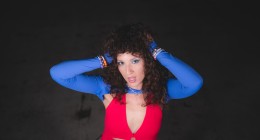Backlash over the Mikayla Nogueira mascara drama and the popularity of the de-influencing trend on TikTok suggest that the traditional influencer model is getting old.
Can anyone tell the difference between fact and fiction on the internet anymore? Amid the booming business of social media stardom, faked-out content has emerged as somewhat of an accepted practice, be it with photoshopped selfies or mirror-less mirror pics. But if the recent viral conundrum of #Lashgate is any indication, the culture of inauthentic influencers may be getting old.
In case you somehow missed the Mikayla Nogueira mascara drama, on January 24, TikTok beauty influencer Mikayla Nogueira (@mikaylanogueira) sparked controversy for allegedly lying to fans with a sneakily sponsored post. In the video, Nogueira raves about the new L’Oréal Paris Telescopic Lift Mascara. She applies two coats, then cuts to a new angle of her lashes. “Look at the length! Do you see that?” she says, showing off her side profile. Practically right away, she was accused of secretly applying false lashes — specifically the brand Ardell Wispies — between takes.
Though Nogueira reportedly denied the use of falsies in the comments, the backlash on her video, which has been viewed 44.7 million times at the time of this publishing, has been swift. (You know it’s bad when there’s a “gate” assigned to it.) The takeaway: Nogueira, who is one of the most powerful influencers on beautytok, has in large part lost the trust of her millions of followers. But is “trust” something influencers should ever truly have?
In times of environmental crisis and economic precarity, the world grows increasingly disillusioned with the deceitfulness of social media stars. Case in point: In mid-January, cosmetics brand Tarte took an exclusive group of influencers to a luxury resort in Dubai. As expected, their daily travel vlogs were peppered with enthusiastic praise of the company’s offerings. Though brand trips like this are nothing new, this one, in particular, sparked viral outrage and endless theorizing about the sponsored promotion of Tarte’s products. All in all, it further revealed the public’s current distrust of the rich and famous.
It’s no secret that the beauty industry relies on the selling power of influencers. But more and more, content creators who post massive PR hauls and suspiciously exuberant product recommendations rub audiences the wrong way. That’s because, unlike a TV commercial or a billboard, it can be hard to differentiate between paid publicity and genuine appreciation. In her video, Nogueira is eager to declare L’Oréal’s new product as a must-have addition to her makeup bag. Notably, a top comment reads, “Is this an ad? I don’t see the disclosure, only a tiny ‘L’Oréal partner’ label at the very beginning that disappears quickly so I’m not sure.” Therein lies the problem.
“I think everybody that [makes] beauty content has been guilty of this at one time or another,” says influencer Jessica Carrasco (@slaybyjess) in a video discussing the fraught Mikayla Nogueira situation. “The truth is that big reactions get engagement.” Influencers likely won’t openly diss a brand, she adds, because they don’t want to be shut out from free products, gifted trips, and lucrative content deals.
As a result, we’re in an age of not really trusting, well, anything. “It’s the end of influencers and I’m honestly really ready for it! They’re nothing more than a marketing tactic,” reads another comment on Nogueira’s post. Whether or not that’s true, it’s clear that traditional influencer marketing is not as effective as it once was. Enter: de-influencing.
As its name suggests, the newly-minted viral TikTok movement is the antithesis of social media advertising. With 56 million views and rising, the trend showcases creators exposing mascaras that clump, concealers that clog pores, and blushes that deliver no pigment. Instead of touting groundbreaking must-have products, it’s about sharing what not to buy — including many beauty items that have gone viral on TikTok. By rejecting the longstanding norm of glamourized overconsumption, it challenges the very validity of some social media stars.
Influencers, by definition, are selling aspects of themselves — like personality, lifestyle, appearance — as things to be consumed. So when they secretly monetize their personal brands, to followers it can feel like a betrayal and a violation of trust. Figures like Nogueira, for instance, position themselves as virtual friends who give helpful advice and great product recommendations. But at the end of the day, their jobs depend on the ability to turn their audiences into customers. If we can’t expect authenticity from these “friends” on the internet, is there still a point in following them at all?








